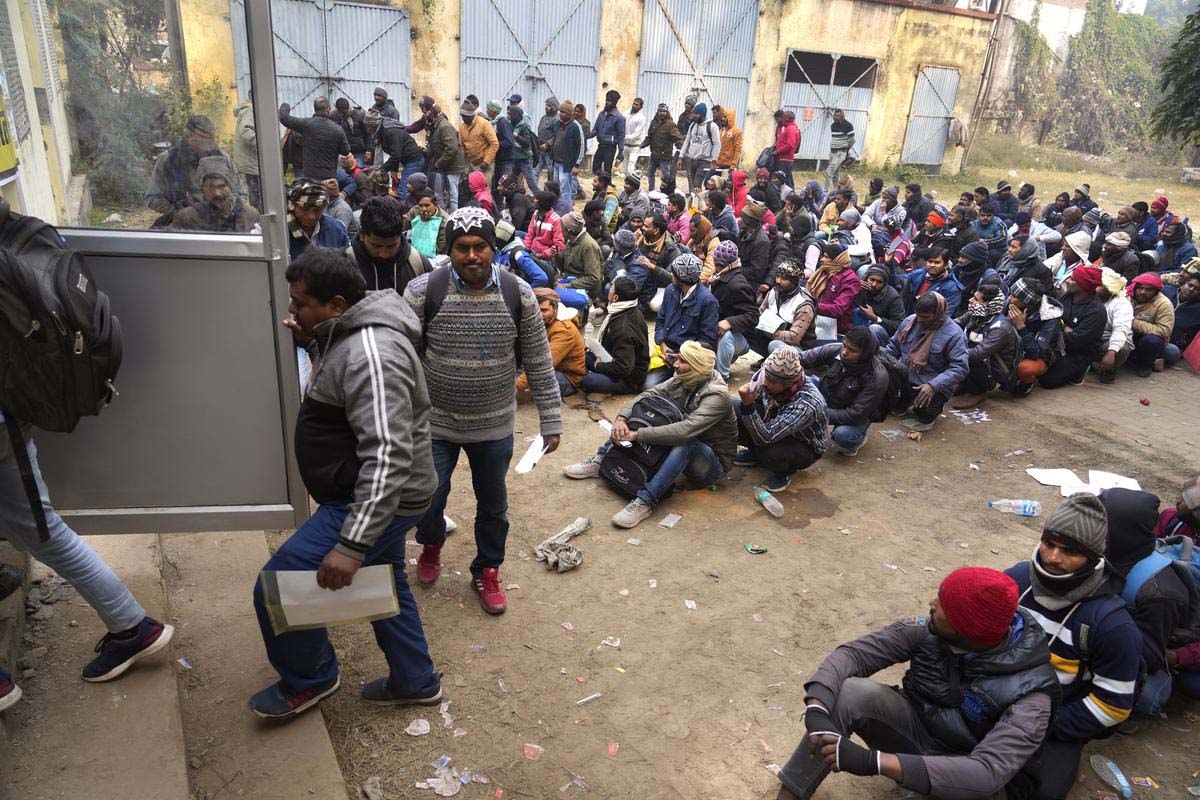The arrival of over 6,000 Indian laborers in Israel during April and May is set to bolster the nation’s construction sector as it grapples with a workforce deficit prompted by the recent Israel-Hamas conflict.
A joint resolution from the Israeli Prime Minister’s Office (PMO), the Ministry of Finance, and the Ministry of Construction and Housing, facilitated the influx of these workers through subsidized charter flights, operating as an “air shuttle,” according to a statement released by the Israeli government late Wednesday.
Israel’s construction domain relies heavily on foreign workers due to a scarcity of domestic labor, with the largest groups historically hailing from the West Bank (about 80,000) and the Gaza Strip (around 17,000). Nevertheless, many of these workers lost their permits following the outbreak of the conflict in October.
This mass arrival of Indian laborers is the most significant influx of foreign workers in such a brief timeframe for Israel’s construction sector. A collaboration between PMO, the finance ministry, and the housing ministry enabled the arrangement for these workers to be flown in, with approximately 6,000 expected between April and May.
Prime Minister Benjamin Netanyahu convened a meeting at the PMO to address the acute labor shortage that has halted numerous projects, subsequently inflating living costs and causing friction among government entities and the business sector.
The arrangement operates under a government-to-government (G2G) agreement between India and Israel. Last Tuesday, 64 Indian construction workers arrived in Israel under the agreement, with further groups anticipated in the coming weeks, totaling 850 by mid-April.
The last few months have seen around 900 Indian construction workers arriving in Israel via the B2B route, facilitated by human resource agencies in both nations.
Sources within the construction sector informed PTI that although over 20,000 workers from India and Sri Lanka had been cleared for employment through the Israeli Contractors Association (ICA) screening process, only about 1,000 workers have arrived, citing “bureaucratic hurdles” as the primary cause of the delay.
These sources noted that many of the cleared workers had already left their prior employment and were awaiting visas to work in Israel. They expressed concern that the Israeli government, despite pledges to expedite the process, had yet to take effective measures.
Last week, the ICA confirmed its swift and efficient handling of government-mandated tasks, having completed three rounds of worker selection and approved more than 20,000 candidates, equally split between the government and business tracks.
The ICA urged the government to expedite the arrival of approved workers and establish a fast-track process for approval and transportation, as the ongoing delay in the arrival of Indian and Sri Lankan workers negatively impacts all stakeholders.
Netanyahu had discussed accelerating the arrival of Indian laborers with his Indian counterpart Narendra Modi in a phone call last December.
In addition to Indian and Sri Lankan laborers, Israel has received approximately 7,000 workers from China and around 6,000 from Eastern Europe.
Economy Minister Nir Barkat’s April visit to India included discussions with his Indian counterparts about recruiting Indians for various sectors, including construction, with plans to bring in as many as 160,000 individuals.
Israel employs around 18,000 Indian caregivers, most of whom chose to remain in the country during the conflict due to a sense of security and competitive salaries.
Last May, Israel and India formalized an agreement during Foreign Minister Eli Cohen’s visit to Delhi, permitting 42,000 Indians to work in Israel’s construction and nursing sectors, a move aimed at addressing the cost of living and meeting nursing demands for thousands of families.
A statement from the Israeli Foreign Ministry outlined the allocation of 34,000 workers for the construction industry and 8,000 for nursing.
In the past half-year, roughly 800 Indian laborers joined Israel’s agricultural sector. The Government Press Office noted that, under the prime minister’s directive, a dedicated team, led by PMO Director General Yossi Shelly, worked diligently to increase the number of foreign workers in Israel, alleviate living costs, reduce bureaucracy, and improve the oversight of foreign labor employment.
Following discussions, Netanyahu requested a decision on foreign worker quotas for the government, outlining adjustments to account for severe economic unemployment affecting domestic labor.
“It was also established that the government will authorize a committee of director generals, chaired by the PMO director general, to allocate quotas between various economic sectors based on government ministries’ requests and the advice of economic officials,” the statement mentioned, amid increasing calls from various economic sectors regarding labor shortages.
Discussions included ministers from finance, interior, welfare and social affairs, and construction and housing, along with the cabinet secretary and PMO officials.
Representatives from foreign affairs, economy, interior, justice, transportation, labor, housing, construction, the National Economic Council, and the Agriculture and Population and Immigration Authority were also involved.









